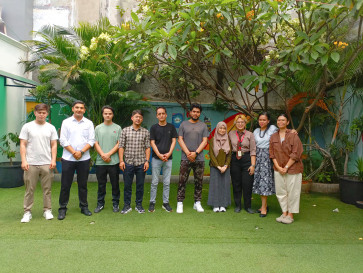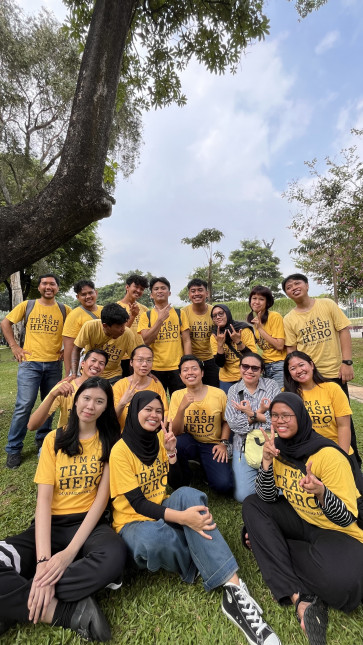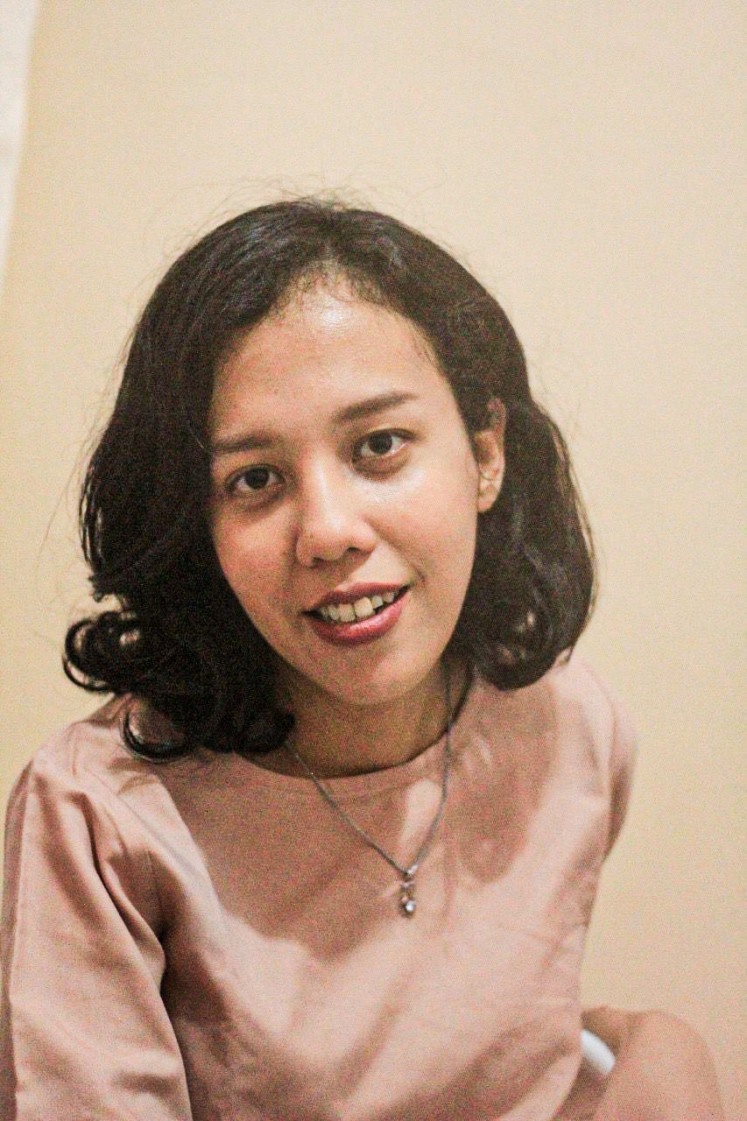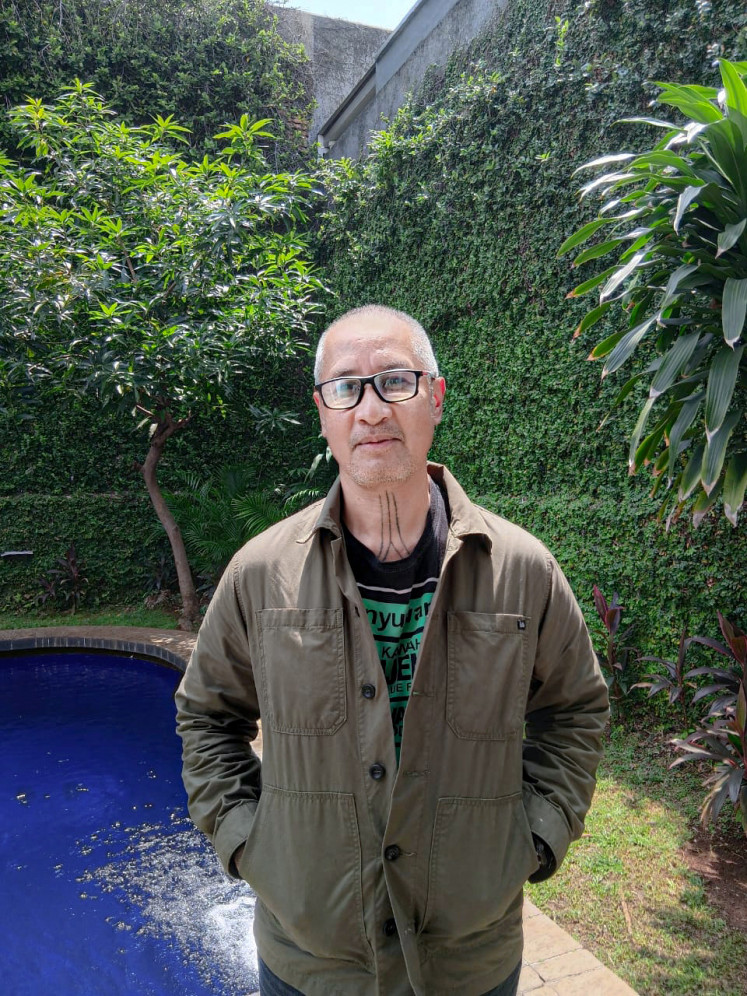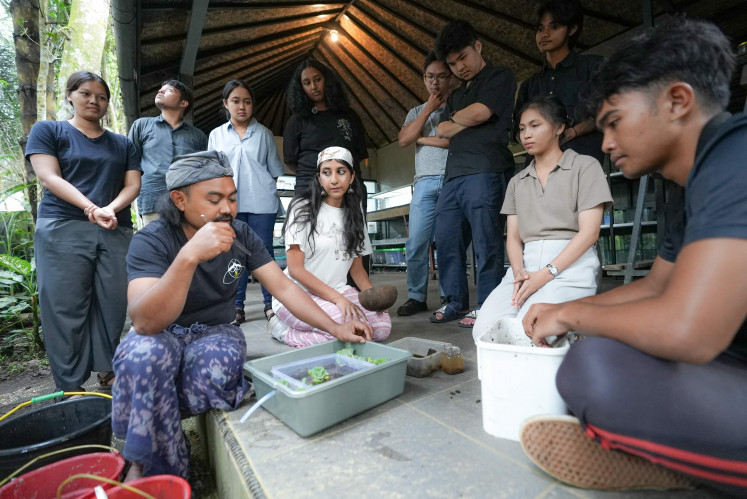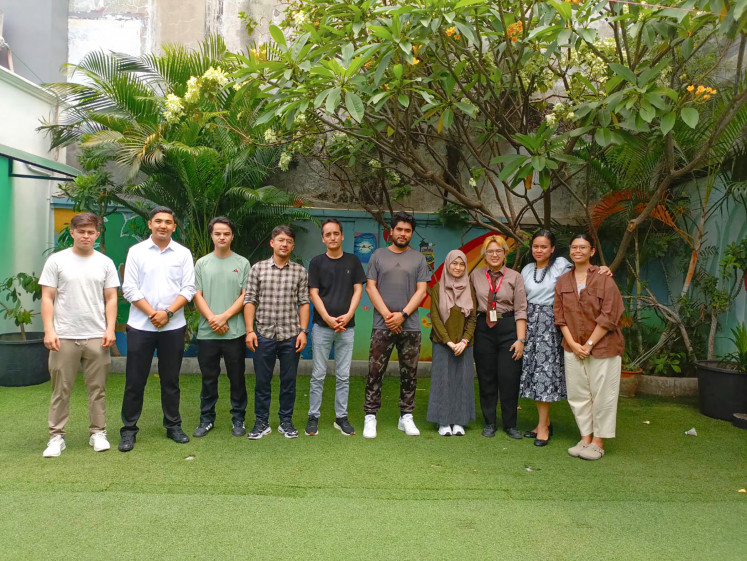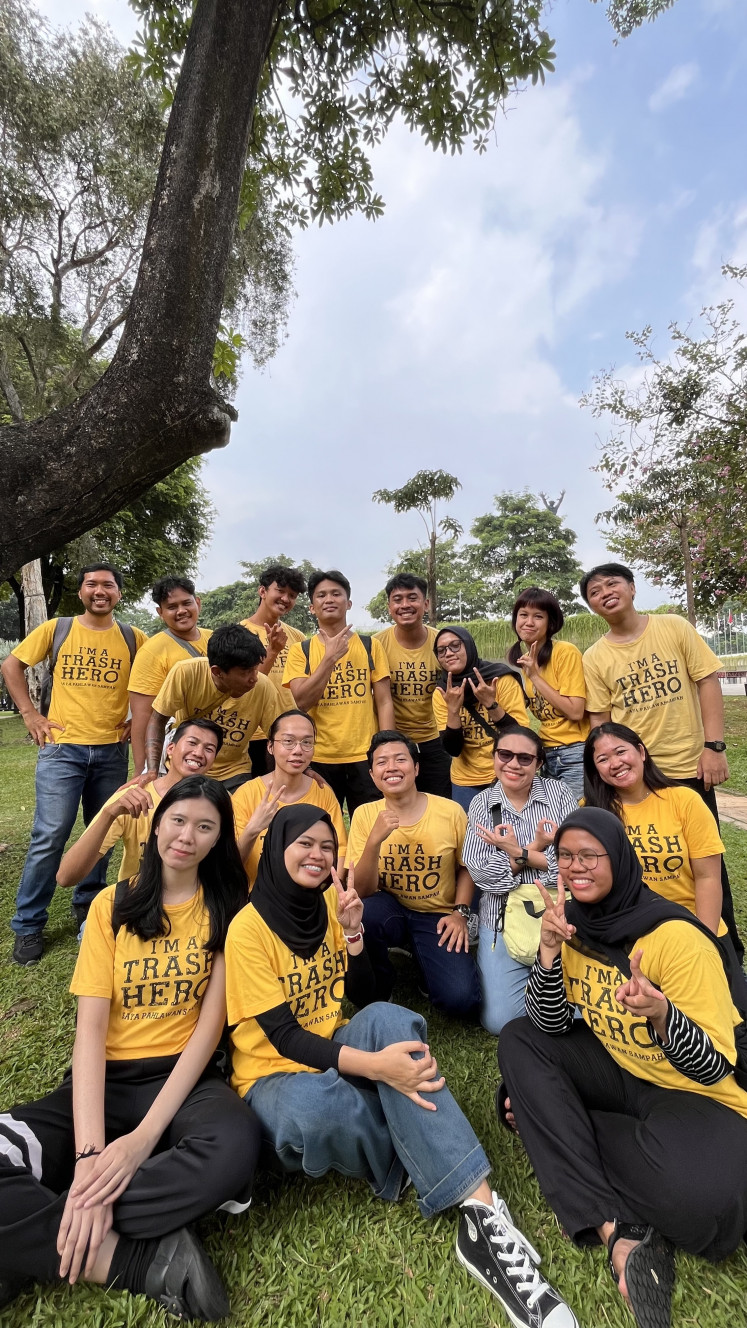What draws us to a movie or series? Maybe it’s the stars (hello, Reza Rahadian and Nicholas Saputra!), the source material (Harry Potter, anyone? Or dare I say, Twilight?) or the director (if it’s M. Night Shyamalan, you know a twist is coming).
But long after the credits roll, what lingers is the story, whether it’s brilliant and thought-provoking or so bad you wonder why you wasted your time.
That’s the power of storytelling, the magic of good writing.
Cinematography, acting and CGI all play their roles, but at its core, screen entertainment is about telling a story. And before the cameras roll, it all begins with a blank page and an idea.
Meet three Indonesian screenwriters whose words have come to life on screens big and small, captivating audiences along the way.
Widya Arifianti: In a man’s world

Thank you!
For signing up to our newsletter.
Please check your email for your newsletter subscription.
Widya Arifianti is one of Indonesia’s rising screenwriters. Her latest film, Home Sweet Loan, drew over 1.7 million viewers and screened in Malaysia and Singapore. Up next is Jumbo, a highly anticipated animated feature, set for release this Eid. She has also made a name in musical theater, writing for Musikal Petualangan Sherina (Sherina’s Adventure) and Cek Toko Sebelah (Check the Store Next Door).
Widya and I went to the same communications school in Depok, but back then, screenwriting was never really presented as a career path. So a decade later, I had to ask: How did she get here?
It started in university, when she assisted a senior breaking into TV writing. From there, she moved through different creative fields, including copywriting, publishing and script doctoring, before establishing herself as a freelance screenwriter.
. (Courtesy of Widya Arifianti)
“A lot of people ask how to become a screenwriter. That’s the tough part, there’s no set path,” Widya says.
“Most writers are freelancers, and not every production house even has a creative department.”
It’s gotten better, though. “We’re starting to see more writers’ rooms now,” she adds.
For women, breaking in comes with extra challenges.
“It’s a male-dominated industry,” Widya points out. “We have a relatively large number of female producers, but not many female directors. So even when we’re writing about women’s issues, we still have to navigate a male perspective.”
There’s no official database of Indonesian screenwriters, but a quick look at the Indonesian Film Festival’s archives shows the imbalance: Out of 43 winners in the screenwriting category, only 11 have been women.
“It was a privilege to work with a female director on Home Sweet Loan, you can feel the difference,” she says.
“The work doesn’t feel exploitative or stereotyped, as it often does when the characters are written by men.”
Widya and her fellow female filmmakers are pushing for change.
“It’s funny that sometimes we’re hired specifically for our female perspective,” she says, “but we still find ourselves ‘womensplaining’, trying to undo the male gaze in scripts.”
“Take horror movies, for example. Why do female characters always have to be oppressed, killed off and then resurrected just to gain power? It’s exhausting.”
Beyond storytelling, she’s also pushing for safer working conditions for women in film and TV.
“Thankfully, with more female producers, there’s been a stronger push for anti-harassment policies. It’s making a real difference, workers actually feel safer now.”
Eric Tiwa: The art of writing as a team
Writing is a solitary craft, but behind the scenes of films and series, it’s often anything but.
Eric Tiwa knows this well. With over two decades in the industry, he’s been at the center of writers’ rooms, collaborative rewrites and back-and-forth discussions with directors and producers.
Now, as head of the creative department at Amadeus Sinemagna Studio, he leads teams crafting stories for both film and streaming platforms. His team has helped produce hit series for Vidio, including Open BO, Happy Go Jenny and Pulang (Come Back).
“My job is to manage the writers’ room,” Eric explains.
“We debate writing principles, story structures and whether to merge or choose between different approaches. With multiple writers, you get diverse references and perspectives.”
The challenge is shaping all these into a cohesive vision.
That push and pull is something he understands on a personal level. His brother, Monty Tiwa, is an acclaimed director and screenwriter and the two have collaborated for years.
“With Monty, it’s always personal,” Eric laughs. “Emotions are always involved, but we know each other’s strengths and weaknesses.”
He says his brother is more plot-driven, while he leans toward character development.
"Monty understands what the market wants and has established his style, while I take a more scholarly approach to structure, characters and their transformations," he says.
“In the end, the director has the final say. We writers can only go so far, but it's always a matter of give and take, of understanding.”
Working out these differences ultimately results in a cohesive final product.
"You can see it in our upcoming movie this April, Mendadak Dangdut [Suddenly Dangdut]," he says.
The film is a remake of the 2006 movie of the same name, which Monty wrote. In this new version, Monty directs while Eric takes over the writing duties.
. (Courtesy of Eric Tiwa)
Unlike his brother, Eric didn’t start in film. He was a journalist and playwright before dabbling in screenwriting in the early 2000s. His career took shape in the United States, where he worked on stage productions in Texas.
Plans for a postgraduate degree were cut short by the Asian financial crisis, so he stayed, writing alongside his brother. Eventually, he moved back to Indonesia, and the duo kept their creative collaboration going.
Eric sees screenwriting as more than just storytelling, for him it’s about problem-solving.
“People don’t realize screenwriting is essentially a problem-solving job,” he says. “We solve problems for directors, producers and the market. They come to us with a multitude of 'problems', [including] creative issues, budget constraints, commercial concerns, even scheduling conflicts. We address these challenges by crafting a script that provides solutions.”
Despite the challenges, Eric considers it a fulfilling career.
“If you’re an introvert, this is perfect,” he jokes. “You get paid to indulge in your own craziness. But seriously, it puts food on the table and a roof over our heads. And I actually enjoy it.”
And he’s optimistic about the future.
“We’ve been through a lot, [including] economic crises [and] industry slumps, but we always bounce back,” he says. “Indonesian film is on a roll, and I believe this momentum will continue.”
Joko Anwar: Showcasing Indonesia’s perspective
Joko Anwar has built a career on telling Indonesian stories with global appeal.
As a writer, director and producer, he has shaped some of the country’s most celebrated films, from A Copy of My Mind to Pengabdi Setan (Satan’s Slaves). His work has won multiple awards, including Best Original Screenplay at the 2008 Indonesian Film Festival and Best Director in 2015.
But beyond the accolades, Joko sees movies as a tool for navigating real life. For those who relate to the issues on screen, films can serve as a guide for dealing with their own challenges. For those who don’t, they offer a fresh perspective on problem-solving.
“That’s the selling point of Indonesian films: Their locality,” he explains.
“Korean movies present life’s struggles through a Korean lens, just as films from other countries reflect their own cultures. The strength of Indonesian cinema lies in our unique perspective. It becomes truly compelling, even to foreign audiences, when we can present universal problems through a distinctly local lens.”
Take Pengabdi Setan, his 2017 horror hit. At its core, the film explores the societal expectation that a woman is only “complete” if she marries and has children; an issue deeply ingrained in Indonesian culture.
His upcoming project, Pengepungan di Bukit Duri (The Siege at Thorn High), tackles a different but equally relevant theme: The growing generational divide between teachers and students.
“In that one, we’re trying to create a compelling film that addresses relevant social issues, but we have to make sure it doesn’t feel preachy,” he says.
“I’d say, being able to do that is my biggest achievement so far.”
Joko began his career writing for the stage before landing his first big screenwriting break with Nia Dinata’s Arisan! (The Gathering) in the early 2000s. The film won multiple awards, including Best Film at the 2004 Indonesian Film Festival and the MTV Indonesia Movie Awards.
“For me, writing my own scripts isn’t a conscious decision,” he says. “I’m just more comfortable directing what I write myself.”
Joko wears many hats, but he doesn’t see juggling them as a challenge.
“Each role has its own phase. Writing comes first, then directing takes over,” he explains.
“Filmmaking is a craft, beyond formats and structures. The challenges aren’t overarching; they’re project-specific. But above all, it demands discipline.”
And discipline is crucial, because film is not just an art, it’s a business.
A low-budget film can cost 4.5 billion rupiah (US$276,558), a mid-budget one up to 12 billion, and that’s not even touching the colossal productions.
"Film is a mass art form, and it's very expensive," Joko explains.
"So, filmmakers have to create informative, high-quality products. Even niche films need to consider their target audience. Starting from pre-production, we have to think about the commercial side. Whether a movie sells is the easiest way to measure success.”
Wrapping up our conversation, I ask Joko for a final piece of advice.
“It’s not something you do just because you don’t know what else to do,” he says. “You have to love writing first. Yes, you can learn the technical aspects, but it’s also about feeling, not just technique. That said, the pay is really good.”
And despite the rise of AI tools like ChatGPT and Gemini, he’s not worried about the future of screenwriting.
“Writing is about taste and emotion, something AI has yet to truly grasp,” he says with a smile.
Adelia Anjani Putri, a communications consultant and former reporter, has found herself writing again. She’s also exploring a career shift that would let her pursue her passions for cooking and catsitting—ideally with a paycheck.






